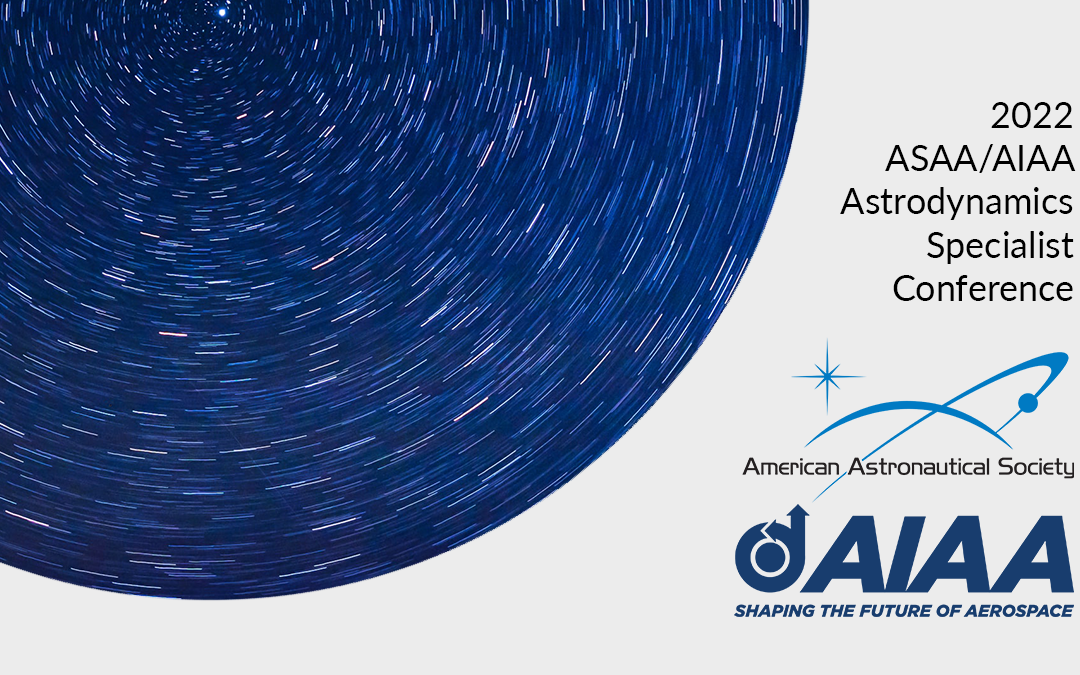A few of our team members are attending the 2022 AAS/AIAA Astrodynamics Specialist Conference next week in Charlotte, North Carolina. We invite you to listen to their work being presented, some of which demonstrates great collaboration and support from the NASA Gateway Program. Reach out and learn ways we may support your needs. We look forward to connecting with you.
Paper presented by our Astrodynamics and Navigation Engineer, Michael Thompson Session: Orbit Determination and Space Surveillance Tracking III Session Room & Time: Governor’s 2 – Wednesday, August 10, 3:50-4:10pm EDT Presentation Title: Comparisons of Filtering Algorithms for Orbit Determination in Near Rectilinear Halo Orbits (AAS 22-622) Short Abstract: As tools are developed for operational orbit determination and navigation in NRHOs for both Gateway and the upcoming CAPSTONE mission, there is interest in determining the potential limitations of commonly used tools and processes when applied to the unique dynamic regimes of the NRHO. This analysis seeks to provide direct comparisons between filtering methods for performing orbit determination in the 9:2 NRHO that will be utilized by Gateway and CAPSTONE. This analysis is divided into two broad categories: quantifying future uncertainty and current parameter estimation.
Paper presented by our Summer Intern & PhD candidate at CU Boulder, Matthew Givens Session: Spacecraft Guidance, Navigation, and Control III Session Room & Time: Governor’s 1 – Thursday, August 11, 10:40-11:00am EDT Presentation Title: Unscented Kalman Filter using Modified Spherical Coordinates for Passive Spacecraft Angles-Only Relative Navigation (AAS 22-568) Short Abstract: Autonomous navigation relative to a target spacecraft using only angle measurements, such as those provided by onboard camera sensors, is a challenging problem that has been the subject of many past analyses. Here, we re-propose the use of Modified Spherical Coordinates (MSCs) as a reliable state parameterization to properly capture the uncertainty associated with angular measurements. We show a straightforward application of MSCs in an Unscented Kalman Filter (UKF) makes for a consistent sequential filtering solution with low computational requirements and contrast it to other comparable algorithms.
